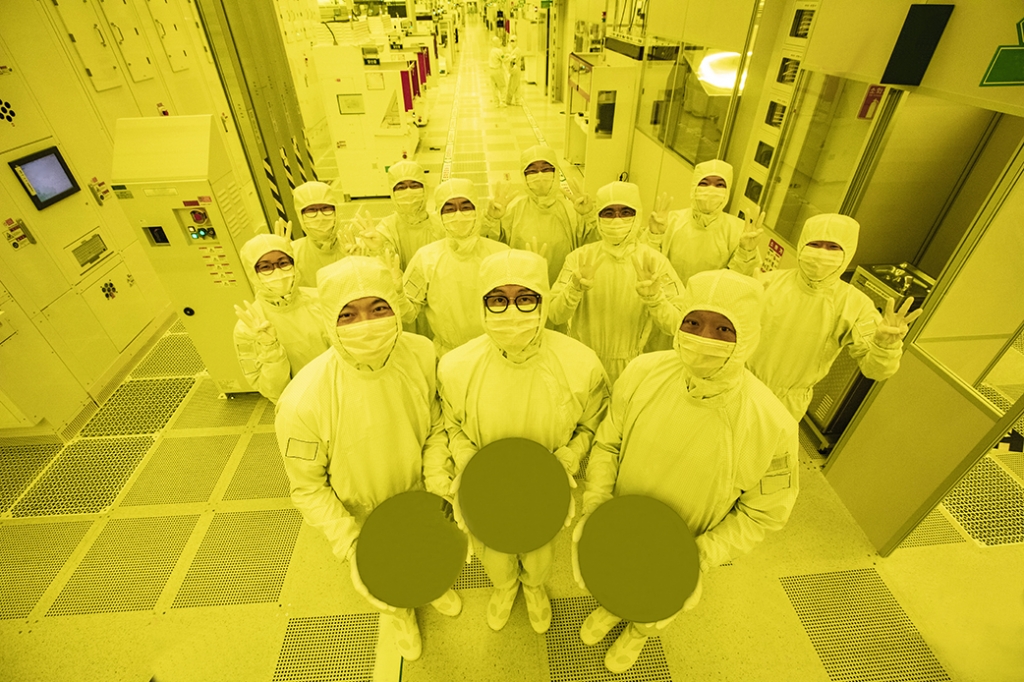 INFRA
INFRA
 INFRA
INFRA
 INFRA
INFRA
Samsung Electronics Co. Ltd. has announced an aggressive roadmap for its most advanced chips, saying it will deliver transistors measuring just 1.4 nanometers across by 2027.
The company said today that its contract chipmaking business will begin manufacturing two-nanometer chips by 2025, with the 1.4-nanometer process set to kick off two years later. Samsung began producing three-nanometer chips in June, becoming the first in the industry to do so.
The new roadmap suggests Samsung will at least match the pace of development of its rival Taiwan Semiconductor Manufacturing Co., which is also set to begin production of three-nanometer chips later this year. By 2025, TSMC also plans to shift to a two-nanometer process. Beyond that date, it hasn’t announced any plans.
Advances in chipmaking are generally measured in nanometers, which is a measurement that loosely denotes the size of the tiny transistors that are packed onto silicon chips. So the lower the number is, the smaller the transistors are, meaning more of them can be squeezed onto a single chip. This makes chips more powerful and improves the battery life of the devices they power.
The Wall Street Journal, which first reported Samsung’s plans, said the two companies are the only chipmakers in the industry that possess both the technological expertise and the finance to manufacture the world’s most advanced chips, which promise to enable new technologies such as artificial intelligence and driverless cars. Their roadmaps are important because they serve as a guide for lucrative customers like Apple Inc. and Nvidia Corp., which will base their future plans on the availability of the more advanced chips.
TSMC is far and away the biggest player in the chipmaking industry, and it’s expected to command an overall market share of around 64% this year, according to a forecast by International Business Strategies. However, in terms of the most advanced chips that are made using a five-nanometer or smaller process, TSMC’s share of the market extends to 90%, with Samsung making up the remaining 10% of sales.
No one else can compete, but if Samsung can deliver on its new process without any issues, it could double its market share by 2026, IBS has predicted. To ensure that happens, Samsung also announced plans to triple its advanced chips production capacity by 2027.
One reason for TSMC’s dominance of the foundry market is that it’s focused only on serving its customers, as opposed to Samsung, which also competes with chip buyers. The Korean firm rivals Apple in the smartphone industry, for example, and is also the world’s biggest TV maker. Another reason is the huge amount of money TSMC has to fund its research into newer, more advanced chip processes.
“Samsung has had a rough time with the past two leading nodes,” said Patrick Moorhead of Moor Insights & Strategy. “That’s not to say then company will 100% be late but I have my doubts. The company has to split its R&D between memory and logic and may not spend enough to keep up.”
However, Samsung can benefit from customers’ concerns about becoming too dependent on TSMC, said analyst Holger Mueller of Constellation Research Inc. He explained that healthy competition spurs innovation and ensures price competition, and there are fears of increased geopolitical tensions between Taiwan and China. “Customers are pulling for Samsung as they want to reduce their dependence on TSMC, which is the only other player of note,” the analyst said. “Competition is good for customers as it fosters innovation and price competition. From a U.S. perspective, the question is whether or not Intel can add itself to the sub-3nm vendor crowd.”
Intel Corp. also has ambitions to become a more advanced chipmaker. It’s aiming to accelerate the development of its flagship personal computer chips and also become a manufacturer for other companies’ semiconductor designs. The U.S. chipmaker has struggled to keep up with TSMC and Samsung, however, and analysts believe it will take several years for the company to catch up.
Support our mission to keep content open and free by engaging with theCUBE community. Join theCUBE’s Alumni Trust Network, where technology leaders connect, share intelligence and create opportunities.
Founded by tech visionaries John Furrier and Dave Vellante, SiliconANGLE Media has built a dynamic ecosystem of industry-leading digital media brands that reach 15+ million elite tech professionals. Our new proprietary theCUBE AI Video Cloud is breaking ground in audience interaction, leveraging theCUBEai.com neural network to help technology companies make data-driven decisions and stay at the forefront of industry conversations.